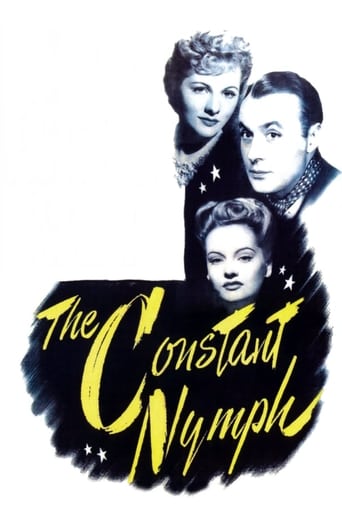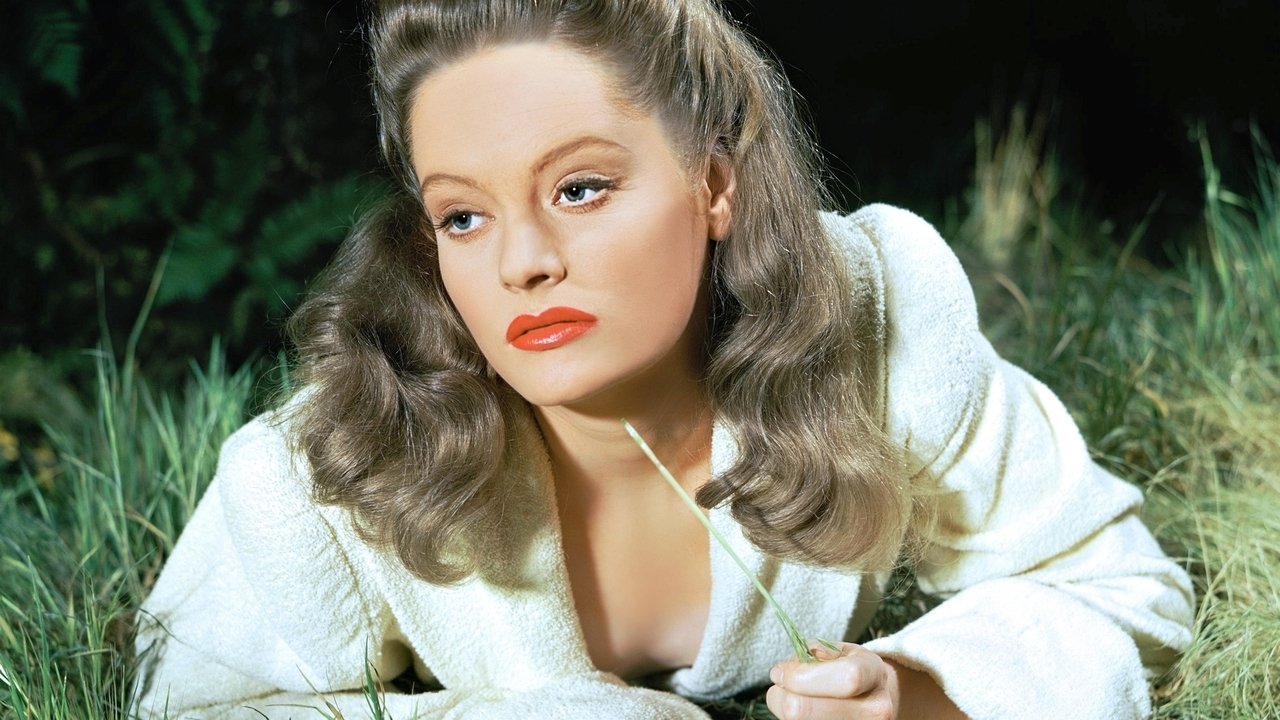atlasmb
The idea of Joan Fontaine at age 25 playing a teenage girl certainly inspired my curiosity about this film. Her performance, which was one of her favorites, was Oscar nominated. Tessa Sanger is a role of complexity and Fontaine gives her a naive nobility in the body of a girl who is energetic and awkward. The daughter of a musical composer, she is infatuated with Lewis Dodd (Charles Boyer), a family friend who periodically comes to visit.Lewis is a frustrated composer with little regard for social conventions. His cynical nature is somewhat abated whenever he visits the Sangers, who live far outside the city. Lewis marries into a rich family and his wife, Florence (Alexis Smith), does her best to accommodate his artistic temperament, but she begins to see Tessa as a divisive factor in their relationship.The music in the film supports the film's story about love. Tessa's love is selfless and pure, the stuff of pure romanticism. Such sentiments are not available to Lewis, and his compositions reflect his inability to access emotional depth. Musical director Erich Wolfgang Korngold supplies a score that consciously illustrates the contrast between the dissonance of modernism with the melodic lushness of romanticism. This culminates in the dramatic and satisfying final scenes.Fine acting, solid direction by Edmund Goulding, wonderful music, beautiful fashions (if only they were in color!) all make for a unique film about love that may be timeless despite the tragic consequences of time. At its core is the performance by Fontaine, who is a joy to behold.
clanciai
There are some major keys to the essence of this tragedy of music and love. One of them is the old composer Albert Sanger, played by Montagu Love, who is the knowledgeable one about music and who clearly sees the foibles of Lewis Dodd (Charles Boyer), the famous wannabe composer, all modernist, but with some hope in him. The old man sees this hope and encourages it, and he dies with something of a testament to Charles Boyer of an idea to "true" music.Another who sees the heart of the matter in music is his daughter Tessa, played by Joan Fontaine, who got an Oscar nomination for her heartrending performance. While she sees through everything she suffers from a sensitive heart and easily gets "palpitations". Her sensitivity is grossly overlooked, underestimated and ignored by her surrounding people, especially by her cousin (Alexis Smith) who marries Charles Boyer who really loves him but never understands him, – even less understanding her "so much younger" cousin, who loves Charles Boyer so much deeper and more understandingly.The tragedy is unsuspected at first, it comes stealing in gradually to in the end affect everyone with overwhelming heartbreakingness, while no one really is guilty. No one could foresee it, not even Alexis Smith, who makes a performance second only to Joan Fontaine.Music and love triumphs in the end but at a terrible cost, while at the same time the truth of love and music stand victorious transcending the pettiness of human relationships, ambitions, careers and all that. Charles Boyer is always perfect in his own way, so natural and dynamic in whatever part he plays, Joan Fontaine and Alexis Smith are both at their best, Charles Coburn reliable as always, and even Peter Lorre has a somewhat pathetically important part in the tragedy, which is of women, love and music. This is an extremely female matter, but Edmund Goulding handles it with great understanding and care, his films are always deeply and thoroughly human, he also made "Dark Victory" with Bette Davis, "The Razor's Edge" and "Nightmare Alley" with Tyrone Power for some examples, and here he reached perhaps his closest touch to the essence of the human heart.
Eleanor Shampine
Although I was only 13 years old the first time I saw this film, it moved me. That may be because I could relate to the Joan Fontaine character. Sometimes we fall in love with a movie for reasons we cannot recall. In any case, I have been searching for a copy (VHS or DVD)for years and find that it is no longer available. I am disappointed to learn that. My sister and I saw this movie together; we cried, it was so lovely. We have discussed it over the years and have both tried to remember certain scenes and some dialogue, but the background music was the most memorable. In fact, we both forgot that it was Charles Boyer who was in the film; we were mistaken in thinking it was Brian Aherne, and that may be one of the reasons we could not find it!
thegreggor-1
This film is one of the hardest to find great films of its day. Joan Fontaine considers it to be one of her two best performances, the other being her work in Letter From An Unknown Woman. Both films share an abundance of similarities. In each, she devotes her life to her love of a musician. Music is as significant and intrinsic to the films as any major character. In addition, the two films both allow Fontaine the dramatic luxury of playing her characters as children. She pulls this off more successfully than any other actress I have seen. In fact, my favorite parts of both films were the early scenes in which she was playing her characters at their most youthful. The Constant Nymph offers some fascinatingly complex characterizations, including Alexis Smith's Florence, whom we hate and feel sorry for at the same time (for stealing away Charles Boyer from Joan Fontaine). This is a very special film with some truly beautiful music. Catch it if you can!



 AD
AD



